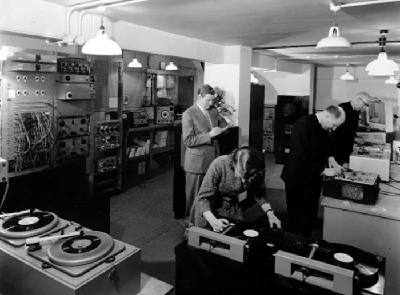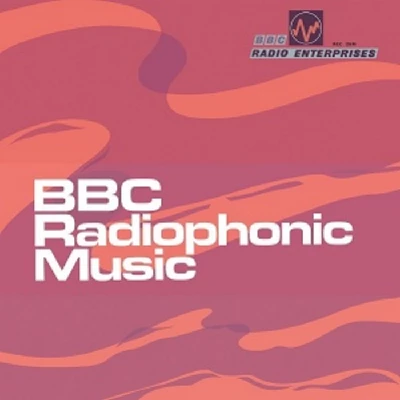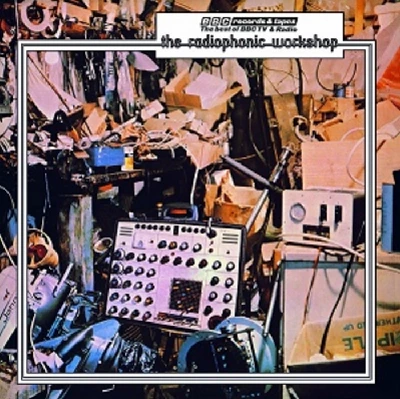Miscellaneous
-
BBC Radiophonic Workshop
published: 14 /
12 /
2013

Jamie Rowland reflects, with albums of its music ‘BBC Radiophonic Music’ and ‘The Radiophonic Workshop’ just having been reissued, upon the history of the BBC's remarkable Radiophonic Workshop studios
Article
Pioneers. That’s really the only appropriate word to describe the small band of engineers, technicians and composers who worked in a few small rooms at the BBC’s Maida Vale studios, crafting sound effects and music that have not only become iconic in their own right, but paved the way for electronic music as we know it.
Formed in 1958, the Radiophonic Workshop was put together to create original sound effects for BBC radio and TV productions. Through the 1960s and 70s in particular, they created sound effects and music which are still being used to this day – most notably on ‘Doctor Who’, whose TARDIS found a voice when sound engineer Brian Hodgson scraped his house key down a piano wire. The same basic sound effect is used to this day. And let’s no forget the Doctor’s legendary theme; composed by Ron Grainer but realised by Delia Derbyshire, undoubtedly one of the Workshop’s most famous and influential members.
If you enjoyed any BBC television or radio programming from the 1950s right up to 1997 – when the Workshop was shut down – you will be familiar with their work. Often their significance and influence has been overlooked when discussing the history of sampling, electronic music and sound design, but in recent years there have been moves to correct this oversight.
The re-release of ‘BBC Radiophonic Music’ and ‘The Radiophonic Workshop’ – originally published in 1968 and 1975, respectively – allows fans of the Workshop to reconnect with their work, and would-be historians the opportunity to see these early evolutionary steps in modern music.
‘BBC Radiophonic Music’ is a collection of pieces by three of the department’s most famous members: Delia Derbyshire, David Cain and John Baker. The music comes from news programmes, educational shows, radio plays and commercials. What is most immediately striking about this record – and 1975’s ‘The Radiophonic Workshop’, too – is how clearly the different personalities of each composer come through in their work. Baker – clearly one of the most prolific of the Radiophonic members, featuring on both albums and with an enormous number of different pieces – is playful and fun, mixing live instruments with modulated sounds, samples and loops. Although his pieces often seem a little dated or cheesy, there’s no doubting his skill as a composer and arranger, and some of his bass-lines in particular are unarguably funktastic.
It’s easy to see why Derbyshire and Dick Mills often worked together; both of their work is focused mainly on atmosphere, creating a feeling or mood through sound (although Mills was capable of bursts of fun too. His short piece ‘Major Bloodknock’s Stomach’ is a testament to that!). David Cain was also a dab hand at creating mood; the synthesized screams in his ‘War of the Worlds’ remain terrifying even now, and certainly freaked my cats out when it blasted out of my home speakers.
Other compositions are like modern classical pieces, such as Roger Limb’s ‘Kitten’s Lullaby’, and indeed some are modern interpretations of classical composers’ work (Derbyshire’s ‘Air’). But in every case the momentum seems to be very much surging forwards, into the future, towards what we now recognize and understand as electronic music. It’s easy to see the Radiophonic Workshop’s influence on 20th Century songwriting – and 21st Century songwriting too, for that matter. You can’t listen to John Baker’s ‘Christmas Commercial’ (‘Oh Come All Ye Faithful’ played on cash-register bells) without thinking Roger Waters must have heard it at some point before writing ‘Money’.
Listening to these records, some of it is startlingly contemporary. Derbyshire’s 1968 piece, ‘Ziwzih Ziwzih OO-OO-OO’ sounds like the backing music to a modern hip-hop track – and it absolutely should be; someone get on sampling this immediately!
One of the things I really enjoy about the Radiophonic Workshop’s work is that it is innovation born out of necessity. Budgets were not high for their department, so the more cheaply you could create an effective sound effect or piece of music, the better. That meant finding shortcuts and discovering new ways to utilise modern techniques and developing electronic equipment. For people like Derbyshire – who studied mathematics and music at Cambridge – these were the kind of challenges she was born to overcome.
For would-be and professional DJs, cultural historians and music fans in general, these albums are essential; a fascinating insight into these sonic explorers who not only helped to shape TV and radio over four decades, but paved the way in sound design, modern composition and electronic music. To me, they are legendary figures; musical heroes who literally helped to shape our modern culture. All of which is a very long-winded way of bringing us back round to my original point. Quite simply, they were pioneers.
Picture Gallery:-

